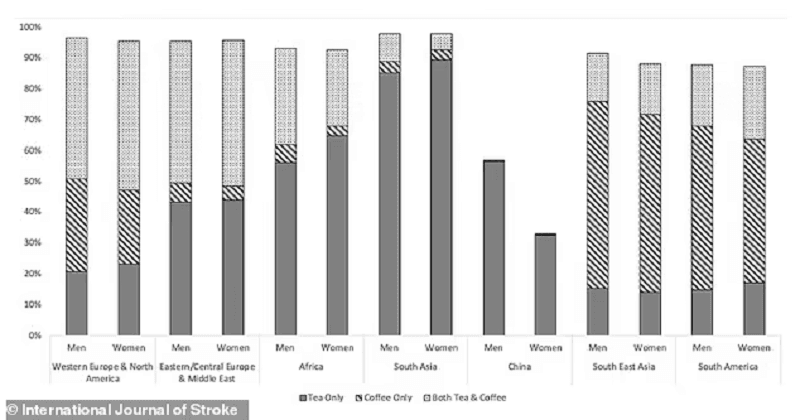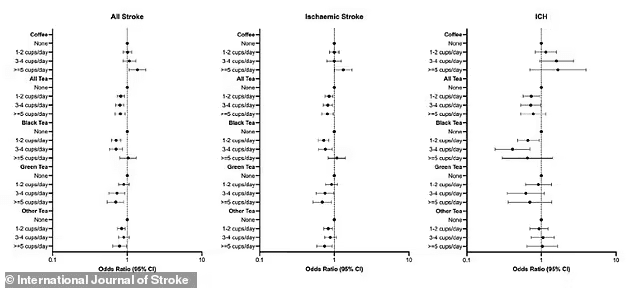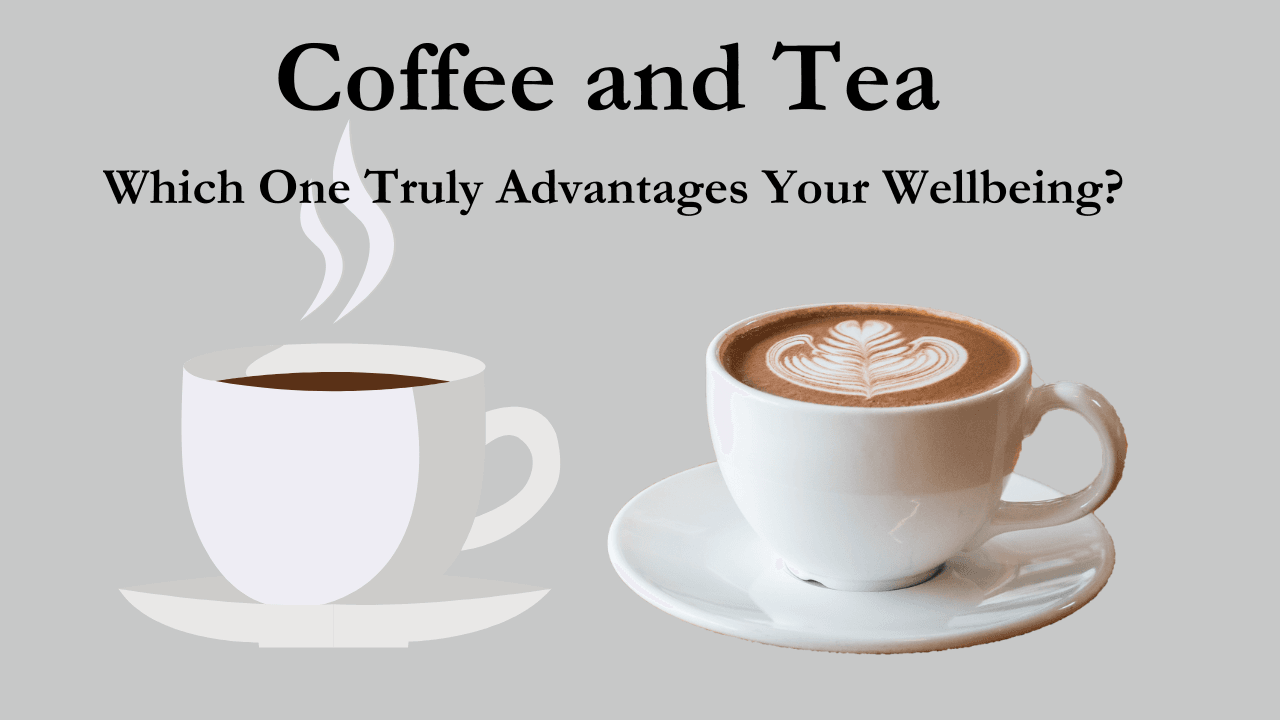Coffee and Tea have received praise for their wide range of health benefits, including boosting vitality, reducing irritability, and even reducing the risk of coronary heart disease.
However, with regards to one specific concern — your possibilities of a coronary failure or stroke — one beverage appears to pull in front of the other.

A pivotal global review, which dissected the drinking propensities for more than 25,000 individuals, discovered a few frightening outcomes. People who consumed multiple cups of espresso day to day saw their gamble of stroke flood by almost 40%. Conversely, a similar volume of tea utilization decreased the stroke risk by nearly 20%.

Specialists hypothesize that this striking contrast may be connected to the propensity of weighty espresso consumers to foster heart-related issues, for example, hypertension, which can hoist stroke risk.
The review, distributed in the International Journal of Stroke, assembled information from 26,950 grown-ups across 32 nations, including significant benefactors like the UK and Canada.
Curiously, about a portion of these members had later endured a stroke. By and large, members were reviewed only more than two days post-stroke, and most were men matured 61 or more seasoned, with a large part being overweight — another gamble factor for stroke.
Peanut Nutrition Unveiled: From Protein Power to Heart Health
Members were given some information about their utilization of different refreshments, including espresso, Chinese and Japanese green teas, dark teas, and other assortments.
Generally, 20% of members stayed away from the two beverages, while almost half favored tea, 15% stayed with espresso, and 20% enjoyed both.
Coffee and Tea: The discoveries were educational:

Drinking at least four cups of espresso day-to-day raised stroke risk by 37%, while a similar measure of tea utilization sliced that gamble by 19%.
Dark teas like Baron Dim and Breakfast Tea showed the best outcomes, cutting stroke risk by 29%. Green tea, meanwhile, was not far behind, exhibiting a 27% decline.
Shockingly, moderate espresso consumption (three cups or less) had no connection to expanded stroke risk.
Nonetheless, analysts noticed that the adverse consequences of over-the-top coffee utilization could be attached to the higher paces of hypertension and raised pulses among weighty coffee consumers.
Coffee, with its 80-100 milligrams of caffeine for each cup (contrasted with tea’s 50 mg), is infamous for its capacity to spike adrenaline creation, which, over the long haul, can harm veins and increment stroke risk.
One Curious finding about Coffee and Tea:
Adding milk to tea invalidated its stroke-related benefits completely. This could be because milk disrupts cancer prevention agents — those strong particles found in coffee and tea that assist with diminishing irritation connected to stroke.
Sadly, the analysts didn’t explore the impacts of sugar or other normal-added substances.
While these discoveries are enlightening, the analysts alert that the review might have a few impediments, including potential review bent since members were evaluated just a brief time after their stroke.
Also, the concentrate’s weighty portrayal of members from tea-drinking districts like China and South Asia might bring some social predisposition into the outcomes.
